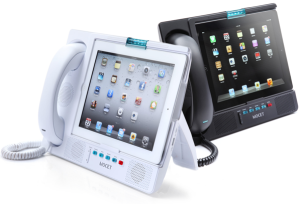In many ways, VoIP regulations and taxes favor larger corporations, in both financial and structural ways.
The Price Competition Factor- Who Pays the Bill?
As VoIP services find themselves increasingly taxed at the State and Federal level, there’s a big question of who, exactly, will pay for these taxes, and how these tax increases will affect competition between large providers and small providers.
Generally speaking, large providers almost always have a price advantage over small providers. That isn’t to say large providers offer a greater value than small providers, but it is to say their economies of scale almost always ensure they can sell their services for less than their smaller competition.
This gives larger providers a distinct market advantage over smaller providers as taxes on VoIP increase. Larger providers are going to be better able to pass these taxes directly on to their customers instead of paying them out of pocket. Often they’ll be able to do so while still offering cheaper services than smaller providers.
Smaller providers face a bigger question as taxes rise- should they make their customers pay these taxes, raising their rates? Or should they pay these taxes themselves, sacrificing some of their already slim margins in order to continue to serve their customers at the same price point those customers are accustomed to?
Once again- let’s reiterate that we aren’t talking about value here, that we’re only talking about price. When it comes to price, larger providers almost always have leverage over smaller providers, which means these increased tax burdens have hurt smaller providers far more than their larger competition.
Read more
 BYOD is a reality, and, by all estimates, it will continue to grow in adoption over the next couple of years, regardless of whether your company officially implements it as a policy or not. Current estimates place BYOD adoption at 60% within the workplace, and projections state BYOD may receive 90% adoption by 2014 alone.
BYOD is a reality, and, by all estimates, it will continue to grow in adoption over the next couple of years, regardless of whether your company officially implements it as a policy or not. Current estimates place BYOD adoption at 60% within the workplace, and projections state BYOD may receive 90% adoption by 2014 alone.


